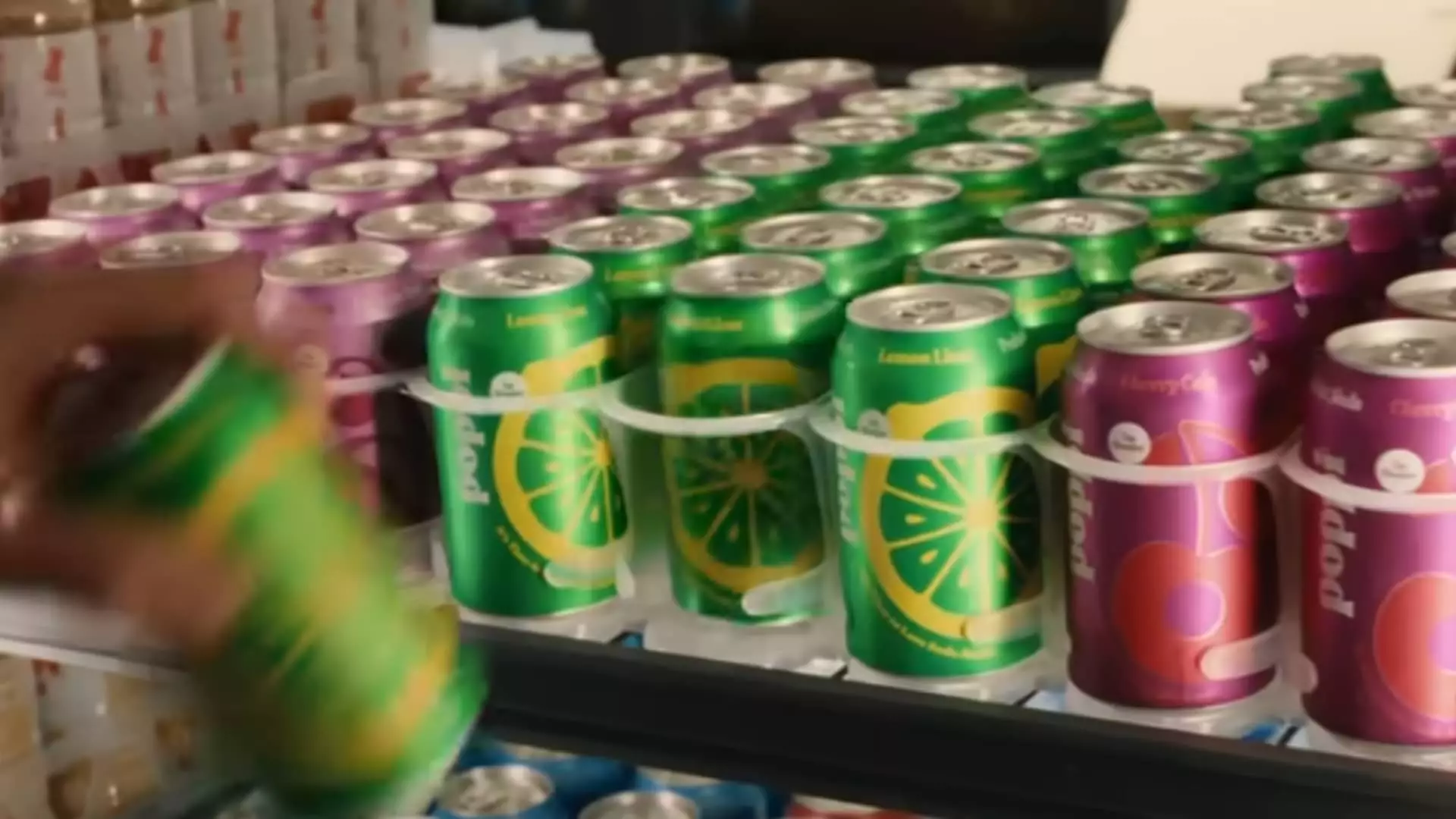In a surprising turn of events, PepsiCo has announced its intention to buy the prebiotic soda brand Poppi for nearly $2 billion. At a time when soda consumption has been in decline across the United States, this acquisition raises eyebrows. The beverage industry has a long history of resistance to change, but Pepsi seems convinced that this niche market, dominated by health-conscious consumers, holds the key to revitalizing its shrinking portfolio. Although Poppi has shown impressive growth, can Pepsi truly navigate this shift in consumer preferences, or is it simply throwing good money after bad?
The Allure of Health Claims
Poppi’s meteoric rise can be attributed to its positioning as a health-oriented alternative to traditional sodas. With its concoction of apple cider vinegar, prebiotics, and minimal sugar, it appeals to a generation increasingly preoccupied with wellness. After all, consumers have grown accustomed to scrutinizing labels and choosing products with purported health benefits. Yet, under this sparkling surface lies a growing discontent. Recently, the brand faced a class-action lawsuit over its health claims, leading to an $8.9 million settlement. This raises an alarming question: if Poppi can’t substantiate its health benefits, will they alienate the very customers that have fueled its success?
A Pricey Gamble with Uncertain Returns
PepsiCo is investing a staggering $1.95 billion in Poppi, factoring in $300 million in tax benefits. This decision is laden with risks, particularly given the back-and-forth on Poppi’s true health claims. Will the investment truly yield the anticipated dividends in an era where consumers are less inclined to put their faith in marketing jargon? As Poppi strives to reach $100 million in annual sales, Pepsi’s decision appears hopeful but speculative. The fact that the acquisition involves performance milestones as part of the deal only adds a layer of uncertainty.
The Competitive Landscape of Prebiotic Drinks
Pepsi is not the only giant eyeing this burgeoning market segment. Rival Coca-Cola has ramped up its efforts with its Simply Pop brand, embodying the fierce competition in this niche market. With competitors like Olipop also drawing attention and reportedly garnering a valuation of $1.85 billion, it raises the stakes even higher for Pepsi. The company’s previous move to develop its own functional soda under the Soulboost brand was mysteriously shelved, hinting that Pepsi might not have the in-house resources it thought it did for this transition.
The Media Spotlight and Brand Image
Poppi’s newfound visibility, buoyed by ads during high-profile events like the Super Bowl, has not come without scrutiny. While flashy marketing campaigns can help capture consumer attention, they can also backfire, especially when consumers start questioning the brand’s authenticity. Trust is paramount in today’s market, and any perceived misalignment between Poppi’s health claims and actual benefits could jeopardize the trust built since its launch in 2018.
PepsiCo’s acquisition of Poppi is undoubtedly a reflection of the changing dynamics of the beverage market, but the move feels more like a gamble than a sure thing. As the soda giants adapt to the whims of health-conscious consumers, one must wonder if they are out of touch with the very audience they aim to attract.

